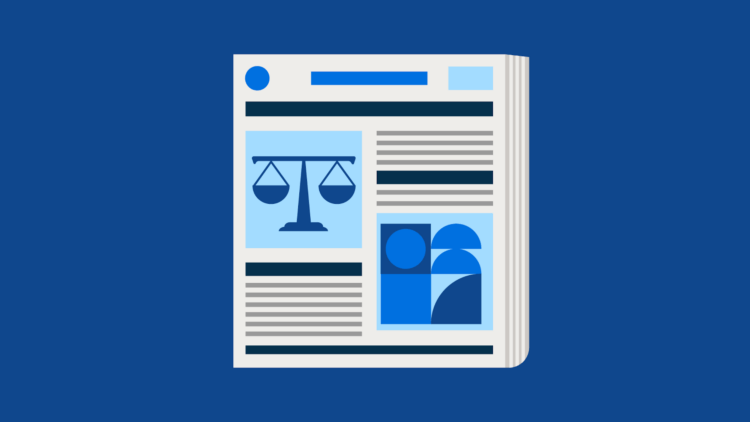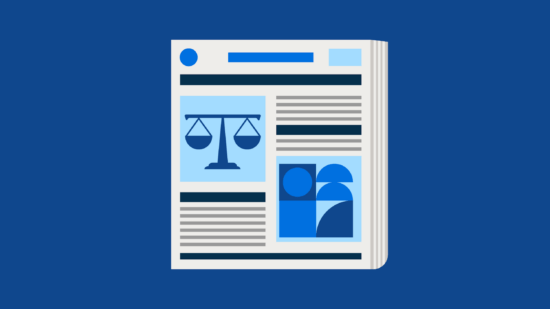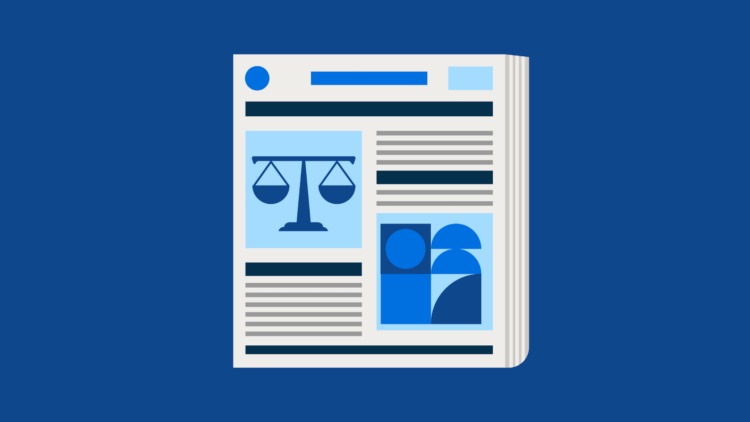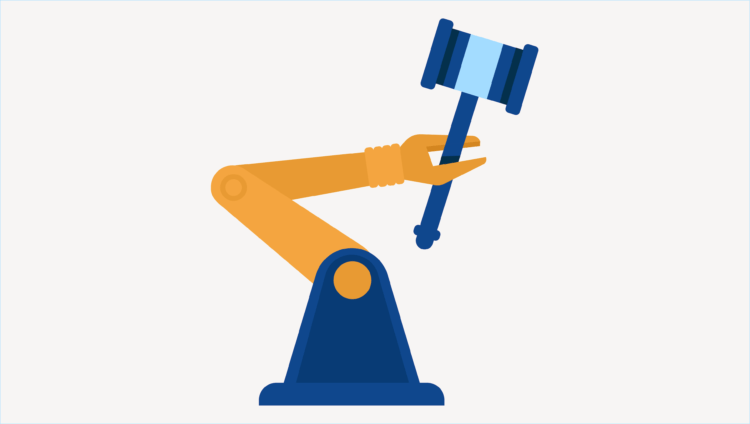These days, news sites are flooded with articles about ChatGPT, the AI bot disrupting industries from programming to law.
And, with all the buzz, legal professionals and clients are asking: will AI replace lawyers? And how can lawyers use AI?
Below, we’ll introduce you to OpenAI—the artificial intelligence company that developed ChatGPT—along with the notorious chatbot and what its development means for the legal profession.
And, if you’re just diving into the world of legal AI, check out Clio Duo—Clio’s AI solution, designed specifically for law firms and built on our platform-wide principle of protecting sensitive legal data.
What is OpenAI?
OpenAI is an artificial intelligence (AI) research and development company creating “highly autonomous systems that outperform humans at most economically valuable work.” Tools like ChatGPT are free to use—though, on occasion demand may be too high for you to access it.
What is ChatGPT?
ChatGPT is an AI-powered chatbot from OpenAI that responds to open-ended text queries with paragraphs of text-written answers. It was trained through reinforcement learning from human feedback. During this process, human AI trainers would converse as a user and an AI assistant, then rank chatbot responses to teach the chatbot how to respond appropriately.
ChatGPT recently released ChatGPT 4o, which understands images, can browse the web, and speaks more languages. This model brings many of the paid capabilities to the free plan, which makes it an excellent opportunity to test out what’s possible without needing to pay. If you’re looking for additional capabilities, you can subscribe to ChatGPT Plus for $20 per month. ChatGPT Plus offers priority access even when demand is high, faster response times, and priority access to new features.
And, anticipation is rising for OpenAI’s upcoming model and the latest version of ChatGPT: ChatGPT-5. While OpenAI has not yet provided a release date, there is speculation that ChatGPT-5 will be released at the end of 2024.
How do you use ChatGPT?
ChatGPT is relatively simple to use—all you have to do is type in your request on the ChatGPT website or the WebChatGPT Chrome plugin. And if you’re working from your iPhone, you can access ChatGPT via the ChatGPT iOS app.
For instance, you can ask the tool to write a poem, answer a question in Shakespearean English, or solve complex math problems.
From there, you’ll get a unique, surprisingly accurate answer on the same website.
You may like these posts
How Lawyers Use ChatGPT
ChatGPT has transitioned from its initial research phase to being deployed in various applications and platforms, advancements and improvements are always ongoing. This leaves legal professionals naturally asking: how can lawyers use ChatGPT?
While AI might not imminently replace lawyers, there’s no doubt that ChatGPT presents opportunities for law firms. From creating legal marketing content to drafting legal documents with the right prompts, the benefits of automating your legal writing with AI seem endless.
What’s more, law firm’s are already attempting to leverage ChatGPT technology to support legal clients. Take, for example, Harvey AI—an AI tool designed specifically for legal work that is already showing promising results. With these developments, it’s clear that AI has a role to play in the legal system—though what role that is exactly remains to be seen.
In fact, according to our latest Legal Trends Report, the legal industry is increasingly adopting a variety of AI-powered technology to enhance efficiency and accuracy, with the top solutions being generic non-legal AI tools, such as ChatGPT, to allow firms to perform tasks like high-level drafting work.
With Clio Duo, instantly access information from case files, draft client communications, extract key details from documents, get smart recommendations on where to prioritize your time, receive suggestions for unlogged work, and more to improve your firm’s productivity and efficiency–check out the AI powers of Clio Duo today!

Challenges ChatGPT poses for lawyers
Beyond technical limitations, like using electronic devices in the courtroom, ChatGPT faces additional hurdles in the legal sphere.
For one, this technology is still in development. And, as eerily accurate as its responses may be, ChatGPT is not a human lawyer.
Nor, it’s not always accurate—users have reported receiving incorrect information from the chatbot-in-training. ChatGPT only has access to information up to early 2022, which is partially responsible for inaccuracies. But competitors that crawl the web in real-time, like Google Bard, also risk pulling inaccurate information published online.
Lacking the nuance necessary to create consistently accurate responses, let alone complex legal arguments, it’s safe to say that—at this stage, at least—ChatGPT is not in a position to replace lawyers.
Additionally, a lawyer’s ethical obligations will always take precedence over convenience.
Not only are there ethical considerations in using AI to argue your cases for you, but issues of security, client privacy, and privilege can also arise through the transmission of data between your firm and ChatGPT. As the chatbot stores personal and conversation data, lawyers must familiarize themselves with ChatGPT’s Privacy Policy and Terms of Use before using the service.
Embracing technology—responsibly—in your law firm
While we’ve highlighted some of the ethical hurdles of how lawyers can use ChatGPT in their law firm, we also know that enthusiastic adoption of technology positively affects a law firm’s business performance. As uncovered in our Legal Trends Report research, the adoption of multiple technologies has a compounding effect on business performance both in terms of impact and overall volume of casework and revenue collection.
In essence, adopting technologies that streamline routine legal tasks, save time, and help you to imprint your expertise on tasks that matter most is a win for any law firm. But it’s critical to assess and implement technology responsibly to ensure you’re meeting your ethical obligations and protecting your client’s interests.
Will AI replace lawyers? Final thoughts
Only time will tell what role AI tools like ChatGPT may—or may not—play in the legal profession.
Still, one thing’s for certain: adopting technology responsibly can help save time managing your law firm and has a measurable impact on law firm performance.
While AI tools like ChatGPT have the potential to change the way lawyers work, that doesn’t mean that it will replace them. Lawyers may harness AI as a tool to help them work faster and more effectively—but they’ll still ultimately be responsible for completing legal work and practicing law. With AI, tasks like e-discovery, drafting legal documents, and conducting due diligence can become less time-consuming, which can, in turn, free up lawyers time to focus on legal work that requires a human touch.
Consider, too, the role that legal-specific AI tools can play in ensuring that your law firm can responsibly adopt AI technology. For example, Clio Duo, our AI solution, can help law firms harness the power of AI while protecting sensitive client data and adhering to the highest security standards. Book your free demo of Clio Duo today.
We published this blog post in January 2023. Last updated: .
Posted in: Clio, Technology
Do more with Duo
Meet Clio Duo, your AI partner that amplifies your workflow, helping you spend more time on the work that only you can do.
Get Started Now





